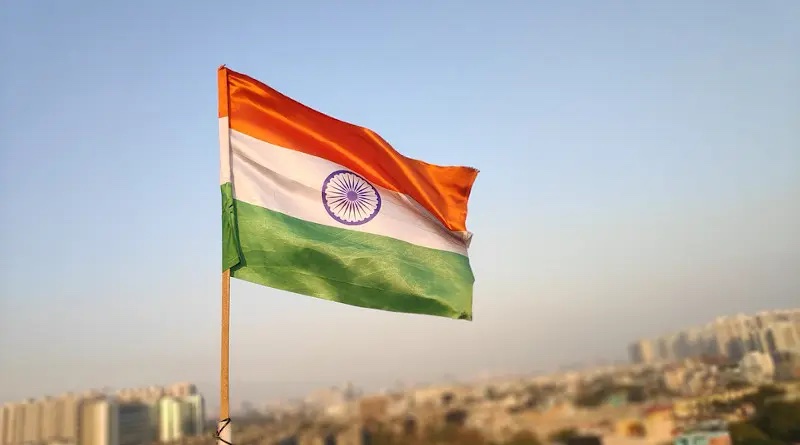Indian Democracy: From So-Called Secularism To Fascism – OpEd
The 26th of January is celebrated every year as ‘Republic Day’ in India, marking the day in 1950 when the Constitution of India came into effect, making India a republic. Since then India claims itself as the world’s largest and most secular democracy with a constitution that guarantees equal rights and protection for all citizens, regardless of their religion. However, this does not necessarily implies that the country follows pure democratic norms and practices. Over the period of years, there have been attributes that are evidence of India moving away from secular democracy and towards a fascist state.
To be considered a pure and secular democracy, or the largest democracy, a country must possess certain fundamental attributes. These include, but are not limited to, strong democratic values and norms within a society, inclusiveness, the active participation of the general public in the democratic process, and equality for all citizens regardless of their religion, caste, or gender. However, India falls short in these areas. One of the most pressing issues facing Indian democracy is the lack of representation for marginalized communities. Despite constitutional protections for Dalits, Adivasis, and other marginalized groups, they continue to face discrimination and violence. These communities are often not represented in government institutions and their voices are drowned out by the more powerful majority. This not only undermines their rights but also undermines the basic principles of democracy.
Along with this, the communal riots and cow-vigilantism against Muslims and other minorities, as well as discriminatory policies, have been widely criticized as undemocratic and oppressive. This undermines the principles of secularism, which guarantee equal rights and protection for all citizens, regardless of their religion. The alienation of minorities, particularly Muslims, and ongoing freedom struggles in various regions of the country, as well as the lack of basic rights for certain lower classes, all call into question the inclusiveness, secularism, and adherence to democratic norms in India’s democracy.
The current Indian Prime Minister, Narendra Modi, is a member of the Rashtriya Swayamsevak Sangh (RSS), a group that promotes the Hindutva fascist ideology. Modi has been accused of being involved in the 2002 massacre of Muslims in the Indian state of Gujarat. Furthermore, the religious freedom of Muslims in India has been deliberately suppressed by the RSS, which is currently in power through the Bharatiya Janata Party (BJP). The recent years under the Modi-led government, there has been a significant increase in attacks on religious places and minorities, particularly Muslims. There have been numerous reports of suppression and violence against Muslims in India, with some incidents resulting in brutal killings by Hindu extremists. These incidents suggest that Muslims do not have religious freedom in India, which is a fundamental aspect of democracy.
In the past, the demolition of the Babri Mosque in 1992, carried out by a large group of extremists from the BJP and Vishwa Hindu Parishad (VHP) was planned by top leaders of the Rashtriya Swayamsevak Sangh (RSS), BJP and VHP. Even today, those responsible for the incident have not been held accountable for their actions. In November 2019, the Indian Supreme Court made a discriminatory decision regarding the destruction of the Babri Mosque, which protected Hindu extremists under the guise of maintaining a balance between Hindus and Muslims. Currently, as directed by the Supreme Court, the BJP government has set up a trust for the construction of a ‘Ram Temple’ at the site of the Babri Mosque, which suggests that the Indian Judiciary was under pressure from Hindu extremists and deliberately protected them.
India’s claim of being the world’s largest democracy and the secular country is called into question by its history of forceful annexations, such as the territories of Goa, Hyderabad, Junagarh, and Arunachal Pradesh. Most recently, the Indian government’s revocation of Articles 370 and 35A of its constitution, which resulted in the political annexation of ‘Indian Illegally Occupied Jammu & Kashmir’ (IIOJK), calls into question the country’s commitment to democracy and secularism. India’s failure to fulfill its promise of a plebiscite for the people of Kashmir, made in 1948 under UN Resolution 47 and its broken promises to the people of Assam, Nagaland and the Sikh community, along with the 2019 Citizen Amendment Bill (CAB) is as an attempt to justify an anti-Muslim agenda. All these raise serious concerns about the credibility of India’s claim of being the world’s largest secular democracy.
In conclusion, despite India’s self-proclaimed status as a secular country and the world’s largest democracy, with a population of 1.4 billion and an estimated electorate of 900 million voters, the fact remains that the practice of democratic norms within India’s democracy is deeply flawed. There is a lack of religious freedom for minorities, particularly Muslims, and ongoing freedom struggles across the country. India has also annexed territories illegally, all of which undermines the country’s claims of being a democratic and secular state. However, the reality of the country’s political landscape is far more complex than this simple label of secularism would suggest. India’s claim of a secular and democratic state is not a reality; the policies and actions of the BJP government have been discriminatory and not inclusive, leading to the country moving towards fascism, particularly with the rise of right-wing Hindu nationalist ideologies.
Muhammad Haris is an Islamabad-based researcher and policy analyst. He frequently writes on issues related to regional security with a special focus on contemporary South Asia.


I wonder why Pakistan is not opening it’s door to persecuted Muslims in India, as Pakistan was created as homeland for South Asian Muslims.